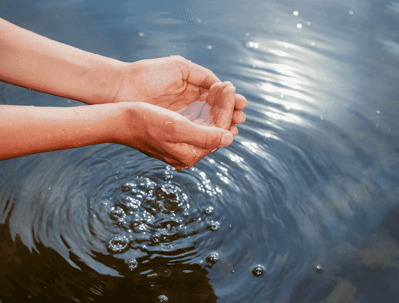No matter where you live, it’s important you consider how safe your water is to drink and use for daily chores. Unfiltered and hard water can impact your life in more ways than you might think. You are about to discover the impact of untreated water and what steps you can take to protect yourself from those problems, giving you peace of mind, which is so precious in these uncharted times.
Unfiltered water can contain chemicals and other contaminants that harm your health. Hard water contains calcium and other minerals that impact your plumbing system, washer, and bathtub. When you use hard water in the bathtub or shower, it irritates and dries your skin. Hard water also makes your hair frizzy and makes it challenging to lather soap, so keep these facts in mind when deciding what path to take.
Water Softeners
Water softeners remove minerals from your water that could harm your appliances and plumbing system. Since hard water damages your appliances and can clog your pipes, a water softener is an investment that pays for itself over time. Water enters your softener and passes through resin beads charged with sodium ions.
The charged ions attract mineral particles and remove them from your water before it enters your plumbing system, and the water then comes out soft on the other side. Some people think that water softeners also filter their water, but that’s not how water softeners work. Since water softeners only use charged particles to remove minerals, they don’t eliminate chemicals or harmful pathogens.
Reverse Osmosis Systems
A reverse osmosis filter is an excellent solution for anyone who wants to have clean drinking water when they use their tap, and these filters have several stages to provide you with the best results possible. Water enters the reverse osmosis system and flows through a carbon filter and then a sediment filter. This first stage removes large particles from the water that would otherwise damage the reverse osmosis system.
The second stage is where the water travels through the membrane of the reverse osmosis system. The membrane has holes so small that they prevent chemicals and tiny particles from passing through to the other side. A pressurized system forces the water through the membrane and produces clean water that flows to a tank for storage. When you turn on the water in your home, water from the tank flows through your pipes and into your faucets, showers or appliances.
Iron Filters
Your water could contain harmful levels of iron that impact your home in ways you might not expect. Iron leaves stains on your bathtub and appliances, and it can even stain your clothes when you place them in the washer. Water containing iron has a metallic taste that many people find unpleasant. Additionally, if your water has too much iron, the iron creates an environment that encourages certain bacteria to grow.
Several types of iron filters are on the market. Make sure you understand each type so that you choose the best one for your home, and you will be pleased with the outcome. Plenty of people select backwashing iron filters and catalytic carbon filters. In addition to those types, you can also try a hydrogen peroxide filter.
Getting Started
If you would like to improve the quality of your water but don't know what option is right for you, our caring team will point you in the right direction. We’ll help you select a softener or filter that matches your goals and long-term needs. If you are worried about the price of your filter, you will be happy to discover we have financing plans available. Contact our team today if you are ready to begin, and you can be sure that we’ll take care of you.

